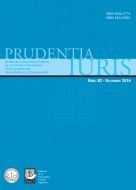Por favor, use este identificador para citar o enlazar este ítem:
https://repositorio.uca.edu.ar/handle/123456789/3177| Título: | Se comporta la Corte Interamericana como tribunal internacional? : algunas reflexiones a propósito de la supervisión de cumplimiento del caso “Artavia Murillo c/Costa Rica” Does the Inter-American Court behave like an international court? : some reflections about monitoring compliance in the case “Artavia Murillo vs. Costa Rica” |
Autor: | Silva Abbott, Max De Jesús Castaldi, Ligia |
Palabras clave: | CORTE INTERAMERICANA DE DERECHOS HUMANOS; DERECHOS HUMANOS; JUSTICIA; LEGISLACION; FECUNDACION ARTIFICIAL; JURISPRUDENCIA; DERECHO | Fecha de publicación: | 2016 | Editorial: | Universidad Católica Argentina. Facultad de Derecho | Cita: | Silva Abbott, M., De Jesús Castaldi, I. ¿Se comporta la Corte Interamericana como tribunal internacional? : algunas reflexiones a propósito de la supervisión de cumplimiento del caso “Artavia Murillo c/Costa Rica” [en línea]. Prudentia Iuris. 2016, 82. Disponible en: https://repositorio.uca.edu.ar/handle/123456789/3177 | Resumen: | Resumen: El presente artículo describe la supervisión de cumplimiento del fallo “Artavia Murillo c/ Costa Rica (‘fecundación in vitro’)”, emitido por la Corte Interamericana en el año 2012, en el que se condenó a Costa Rica a legalizar la reproducción artificial y a subsidiarla con fondos públicos por medio de la Caja Costarricense del Seguro Social. Particularmente, se analiza la actuación que ha tenido la Corte con posterioridad a la sentencia definitiva, manifestada en la medida provisional, la audiencia de supervisión de cumplimiento y la resolución de supervisión de cumplimiento del caso “Artavia”, en las cuales es posible apreciar diversas irregularidades de forma y fondo que afectan tanto a esta causa en particular como al Sistema Interamericano de Derechos Humanos en general. Abstract: This article describes the monitoring of compliance with the judgment in “Artavia Murillo et al. v/ Costa Rica (‘in vitro fertilization’ case)”, issued by the Inter-American Court of Human Rights in 2012, where the court ordered Costa Rica to lift its ban on in vitro fertilization and to subsidize it through its Social Security System. In particular, the paper analyzes the Court’s actions in the aftermath of the judgment, in provisional measures, the supervision of compliance hearing and the supervision of compliance resolution in relation to the “Artavia” case, all of which show different substantive and formal irregularities that affect both the case in point as well as the Inter-American System of Human Rights in general. |
Cobertura Espacial: | COSTA RICA | URI: | https://repositorio.uca.edu.ar/handle/123456789/3177 | ISSN: | 0326-2774 (edición impresa) 2524-9525 (edición online) |
Disciplina: | DERECHO | Derechos: | Acceso Abierto | Fuente: | Prudentia Iuris, 82, 2016 ISSN 0326-2774 (edición impresa) ISSN 2524-9525 (edición online) |
| Aparece en las colecciones: | PI - 2016 nro. 82 |
Ficheros en este ítem:
| Fichero | Descripción | Tamaño | Formato | |
|---|---|---|---|---|
| comporta-corte-interamericana-como-tribunal.pdf | 359,94 kB | Adobe PDF |  Visualizar/Abrir |
Visualizaciones de página(s)
170
comprobado en 30-abr-2024
Descarga(s)
115
comprobado en 30-abr-2024
Google ScholarTM
Ver en Google Scholar
Este ítem está sujeto a una Licencia Creative Commons

